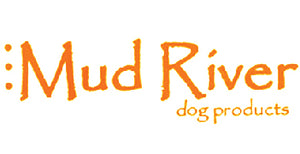Parvo: Once a Deadly Virus, Now Nearly 100% Preventable with Vaccination
Viral Hemorrhagic Gastroenteritis, a.k.a Parvovirus: A vomit-inducing, appetite-suppressing, dehydrating, stomach-aching, bloody diarrhea caused by one tough-to-kill virus. Parvovirus is not a new disease, and prevention and treatment of this condition have come a long way since discovery in the late 1970’s. Appropriate vaccination timing in puppies, as well as regular booster vaccinations, nearly eliminates the risk of infection. Parvovirus can attack undervaccinated dogs of any age; unfortunately, young dogs are least likely to survive the infection without aggressive medical intervention. Parvovirus replicates in the intestines, bone marrow, and heart tissue. Due to the severe vomiting and diarrhea infected animals experience, severe dehydration and sepsis are common secondary problems that need treatment. Parvovirus does not have a specific remedy, so aggressive supportive care early in the course of disease is a mainstay for a survivable outcome. Some pets can be managed at home after being stabilized at a veterinary clinic. A pet that survives Parvovirus is considered immune from reinfection, yet is a carrier of virus for several weeks after recovery. Keep your new pup protected.
Avoid contact with older dogs, wild animals, and fellow young dogs until puppy has been examined and has had at least 2 rounds of puppy vaccines. Vaccination for Parvo should begin at 6 weeks old and booster shots should be given every 2-4 weeks until the puppy is at least 16 weeks old. Breeds with higher risk should be vaccinated up to 20-22 weeks of age for best protection, as maternal antibodies may prevent appropriate response to vaccination at earlier ages. If possible, wait to introduce to other pets until your pet’s vaccination series has been completed. If attending boarding, grooming, or training classes prior to 4 months of age, this is a potential exposure risk even with the best vaccination protocols. The age at which a pet responds to vaccination is difficult to predict which is why a series of vaccinations is used.
Dogs that appear at greater risk for Parvo infection include:
- Rottweilers, Dobermans, Labradors, and Bull terriers
- Dogs with an unknown or sketchy vaccination history
- Dogs in a shelter setting or crowded stressful environment
Wild canine species and poorly vaccinated domestic dogs are sources of most infections. Cats can occasionally be infected too. Outbreaks at kennels, boarding, and breeding facilities occur when pet owners do not adhere to vaccination protocols or when disinfection and quarantine protocols are subpar. Parvovirus is really tough to eliminate once an environment is contaminated -yards and organic material (eg. carcasses) can harbor parvovirus for years and the virus can survive freezing; direct sunlight is helpful aid in destroying virus. The best disinfectant to kill Parvovirus is bleach. Bleach diluted with warm water at a ratio of 1 part bleach to 32 parts water and a contact time of ten minutes will inactive virus on hard surfaces. A note on vaccinations: A frequent misunderstanding to new puppy owners, the phrase “up-to-date” on vaccines does not equate to protective lasting immunity. It simply means that the pet is as protected as possible for its current age. Also, vaccination recommendations may vary based on geographic location and among breeders.
Check with your local veterinary clinic for vaccine recommendations- this is the best resource for accurate information to protect your pet. Many vet clinics will offer new pet exams within the first few days of adoption to check for any health concerns and go over recommended vaccinations and preventative care.
### Amanda Burow, D.V.M. (Dr. B), is a graduate of Iowa State University’s College of Veterinary Medicine. Dr. Burow’s patient list includes hunting dogs of all varieties, as well as several field trial dogs and full time sporting guide dogs. In addition to practicing general veterinary medicine, she has special interest in the areas of preventive care, emergency medicine, and dermatology. In her spare time, she enjoys being outdoors and on the lake, staying active, reading, and spending time with family and friends. Mud River is proud to share these tips from Dr. B with our customers. Keep in mind it is best to work with your local veterinarian to determine the needs for your animals.







